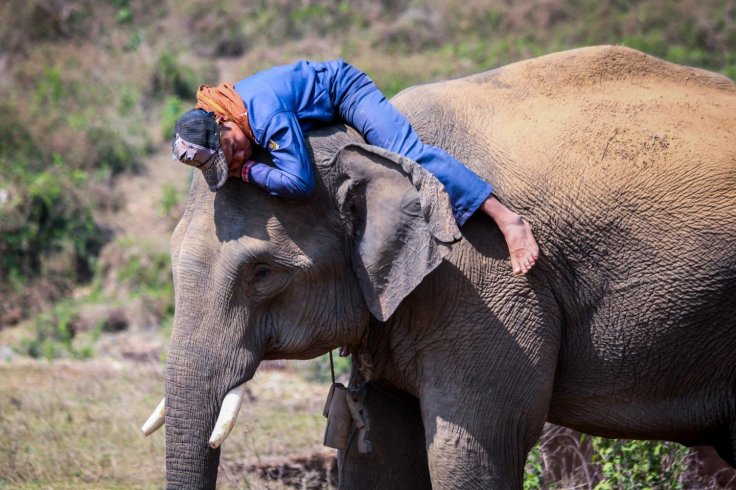
An elephant broke into a school in the Malaysian province of Sabah on Thursday, forcing the eviction of teachers and students, authorities said.
The elephant appeared to be foraging for food at the SMK school in Telupid, a small town in the region, and stomped through several classrooms in the building while people were still inside, as seen in a video published on the Facebook profile of the Sabah Police. Authorities indicated that this was the second time this year that an elephant entered the educational centre, reported IANS.
Local Wildlife Rescue Unit veterinarian Diana Ramirez told media that they are trying to relocate the elephants back into the forest. "We are still trying to capture more and get the herd away from humans," she said.
So far they were able to capture four aggressive elephants which would be translocated soon, she said. It is estimated that there are 20 elephants in the herd which is entering the Malay villages and destroying plantations.
On Wednesday, 10 elephants demolished a fence to access the premises of the Beluran police station, about 5 km from the school.
Rapid deforestation affecting the ecosystems of Borneo island is threatening the survival of elephants in the region with an estimated population between 500 and 2,000.
Borneo forest is fast losing its green cover with a current deforestation rate of 1.3 million hectares per year. A 2012 study by WWF projected that at this rate, 21.5 million hectares will be lost by 2020.
Palm oil plantations, pulp plantations, illegal logging and forest fires are among the major culprits of deforestation in Borneo forest, virtually driving wildlife into the towns and villages for food.
Satellite studies show that some 56% of protected lowland tropical rainforests in Kalimantan were cut down between 1985 and 2001 to supply global timber demand – that's more than 29,000 km², almost the size of Belgium, said WWF, which has undertaken initiatives such as the Heart of Borneo to conserve these pristine tropical rainforests.
(With inputs from IANS)









